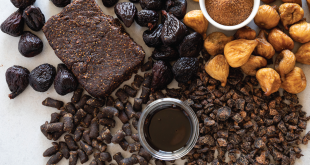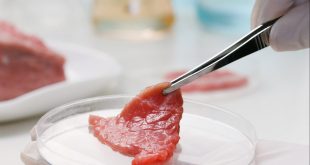When discussing the most significant global issues that pose genuine threats to the health and well-being of people on the planet, one would be remiss not to mention the current food crisis hampering most, if not all, corners of the world. In light of this, food scientists and researchers everywhere are feverishly working toward the discovery or development of solutions that might solve for the issues and challenges around growing enough food to feed every mouth, in every community, in each and every country on earth. As a result, some are pushing the foodtech boundaries like never before in search of answers. And some, like Mitchell Scott, Founder and CEO of Vancouver-based Cult Food Science, are helping to break new ground, pioneering a whole new way of looking at food production.
“Cellular agriculture has the potential to completely change the way we produce food,” he asserts. “And, the impacts can be felt across a spectrum of foods. There’s cell-based meat and precision fermented dairy. There are ways to produce honey without bees. And each of these food production alternatives to our traditional methods helps to address a problem we’re currently facing. Even 85% of the world’s chocolate supply, for example, is at risk as a result of climate change caused by deforestation. Global meat demand is set to double in the next 20 to 30 years. Currently, 95% of meat produced in the U.S. is factory farmed in really bad conditions with really negative impacts on the environment. We’re using a third of the world’s landmass for animal agriculture. And we can’t just double that as demand doubles. So, we need to figure out a different way of producing these products. The technologies that we have available today can help us produce the foods we all love that traditionally come from an animal in a way that, for the most part, takes the animal out of the equation, offering a far more sustainable approach to food production that’s much better for the environment, for human health and for the animals themselves.”
Supporting food innovation
Cult Food Science is an investment management company focused on innovators within the cellular agriculture and foodtech space. Scott explains that the company focuses on how it can help bring these cutting-edge technologies forward into the mainstream and incubate and support their developers in order to address the issues that we face. For instance, there are companies specializing in cultivated meat, enabling small samples, or biopsies, of animals to be taken from them and used to grow the meat that we need without the need to grow the entire animal. This obviously helps solve for a number of different current issues, including our dependence on land to raise animals for food. However, the foodtech pioneer goes on further to suggest that beyond the environmental advantages offered by cellular agriculture, the quality of the product will ultimately win over any detractors of the technology.
“It’s a huge benefit for everyone involved to not require these massive industrial operations to produce animals and kill them at scale,” he says. “With these technologies, we can take a more science-based approach and just produce the part of the animal that we want. But the real benefit is that on a cellular level, the quality of the product is identical to traditional meat product. The technology will become so advanced and precise that cultivated meat and other foods will look, tase, feel and smell exactly the same to the end consumer.
Plant-based foods are great. But those products just don’t quite deliver on taste, texture, or overall experience. And so, I think that’s the true promise of all these different types of technologies is that they’re going to produce a product that’s the same as the real thing. They’re just going to be made in a very different way that’s much, much better for everyone involved.”
Education is needed
To that point, in order to properly present the benefits and quality of cultivated foods to the end consumer, Scott believes that the burgeoning industry needs to be a much better job of informing and providing all of the facts in order to ensure continued growth and increased interest among the public.
“There are a whole bunch of huge opportunities around education,” he says. “The industry’s got to work to change consumer perception. Lab-grown meat still sounds a little scary to some people. They think that it isn’t natural and can’t seem to get past that perspective. Just as is the case with any new technology, there are questions concerning credibility, quality, legitimacy, and rightly so. If people first understood that the way most meat in North America is produced is not coming from happy cows on farms, and that it’s coming from these huge operations that are incredibly disruptive, they might look at things a little differently. If we can educate people to recognize that cell-cultured meat is in so many ways a cleaner, safer, and healthier way of producing meat, then we’ll likely start to see perceptions really begin to change. Many of these technologies and new products are only starting to hit the market. So, it’s going to take a little time for people to come around to it. But, in the shorter term, there are definitely opportunities around providing people with the right information to enable their decision-making.”
World-changing opportunity
Currently, Cult Food Science works with premium pet food brand Noochies!, cell-based sparkling coffee brand Zero Coffee, and cell-based performance gummies brand Free Candy to help enable the production of some of the first cell-cultured foods on the Canadian market, with many more in the works. In fact, it is currently partnering with 18 different companies across the sector in efforts to support the production of a wide range of food products, including cultured proteins, meat, dairy, coffee, seafood, honey, and ethical chocolate. It’s an ambitious portfolio of work and investment that Scott recognizes. However, it’s work and investment that he believes is helping to pave the way forward toward a healthier, safer, and more environmentally sustainable form of food production.
“Because many of these technologies are very new to the market, there are challenges scaling up production and adoption. Large bioreactors are required, which are not cheap. This is where government support is required. There are a ton of subsidies for traditional animal agriculture. I think our government really needs to do more to invest in and support these companies so they can scale and reach the true benefits of these technologies for all Canadians. It’s what we’re extremely focused on: helping these companies become successful and change the world. It’s going to be important to really grow the cell-cultured food ecosystem over the course of the next couple of years in order to achieve scale and help introduce these amazing products to the market and end consumer. The more consumers see these products available and try them, realizing that they’re as good as the traditional product, the easier it will be to accelerate growth of the industry.”
 Canadian Food Business
Canadian Food Business




